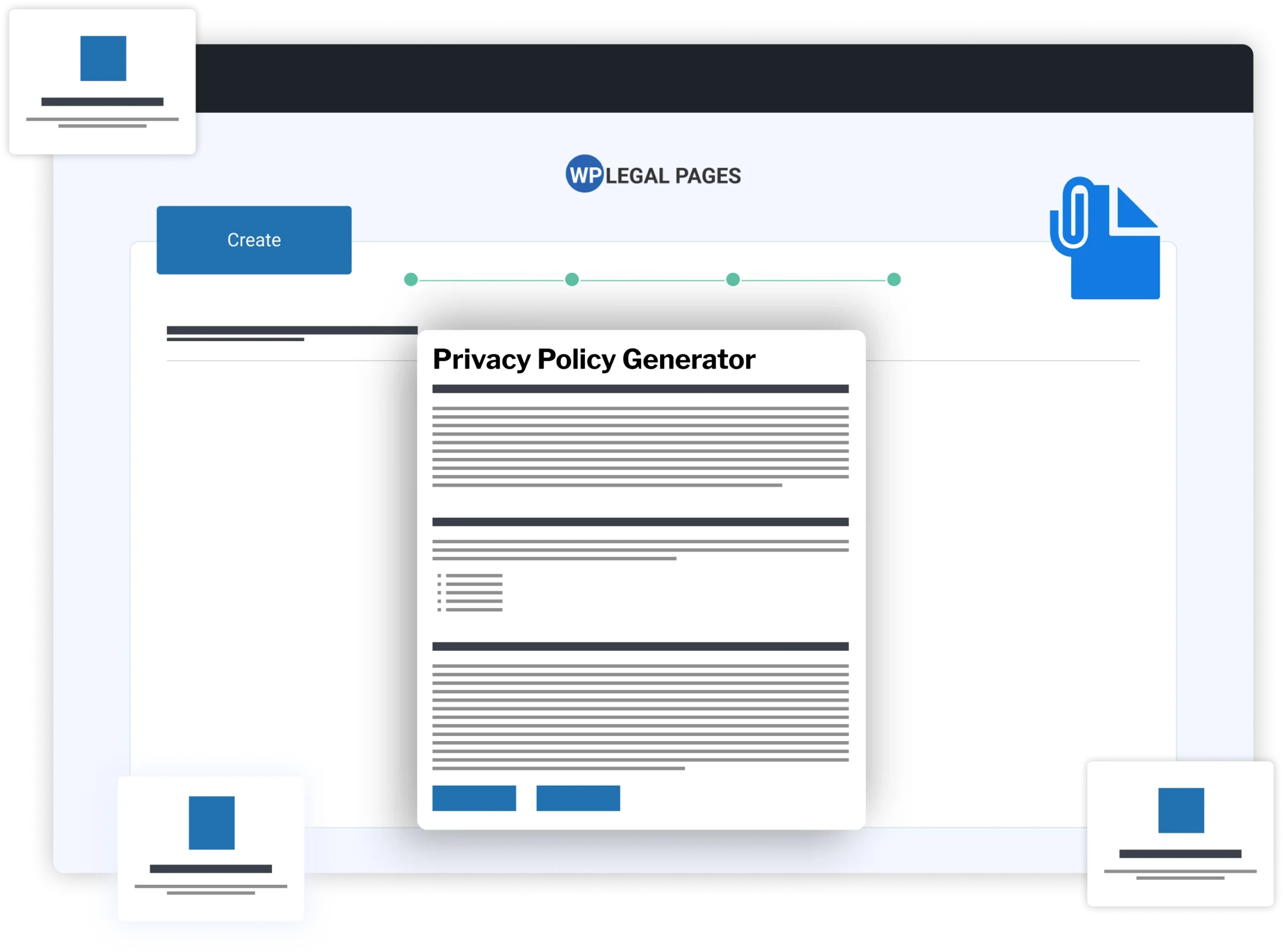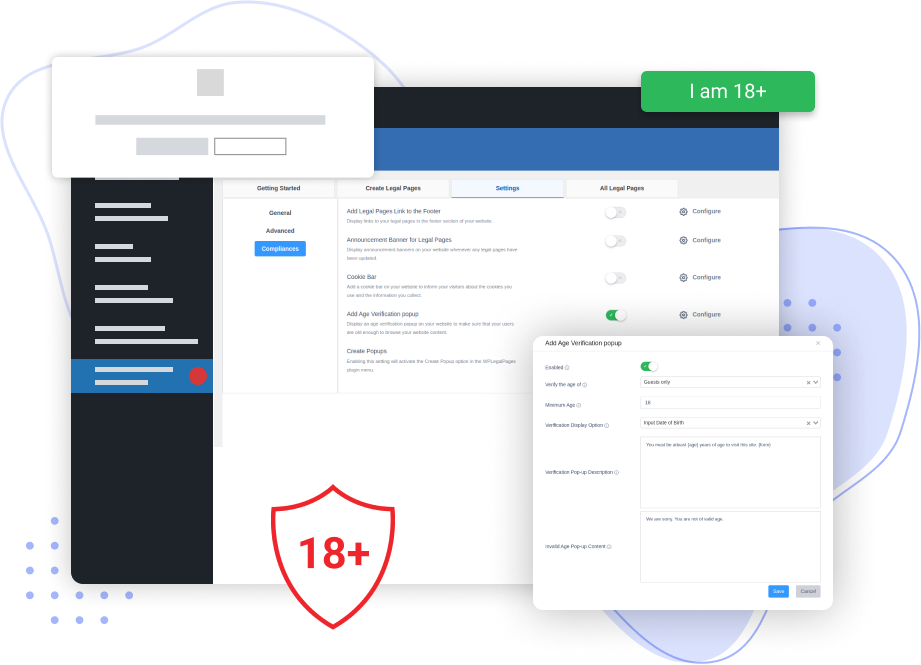It is quick and easy to generate a privacy policy for WordPress websites using WPLP Compliance Platform.

Avoid legal risks and earn visitor trust with a professional privacy policy.
Meet requirements like GDPR and CCPA to avoid hefty fines.
Show visitors you take their privacy seriously, fostering trust and loyalty.
Mitigate potential legal risks associated with data collection.

If your website collects any data from visitors, you likely need a privacy policy. This includes collecting information like: Email addresses, Contact forms, Comments, User accounts, Analytics data (cookies).
Protecting user data from comments and contact forms is essential.
Comply with regulations regarding purchase information and payment details.
Outline data collection practices for registered users.
Be transparent about how you use visitor information.
WPLP simplifies creating a legally compliant privacy policy. Answer a few questions and get a draft policy tailored to your website.
Answer a few quick questions about your data collection practices.
Review your draft policy and personalize it to match your website's style.
Add your new privacy policy to your website with a single click!
WPLP goes beyond simply generating privacy policies. It’s your one-stop shop for all your website’s legal compliance needs. Our user-friendly platform empowers you to:

Writing a legally compliant privacy policy can be daunting. WPLP is the best privacy policy generator, eliminating confusion with its user-friendly interface. Our platform guides you through the process, ensuring your policy covers all the necessary aspects.
We use clear and understandable language, so you don't need a law degree.
Our templates are constantly reviewed to reflect the latest regulations.
Skip hiring a lawyer and generate your policy in minutes.
Don’t wait! Protect your website and your visitors’ privacy today.
A WordPress privacy policy generator is a tool that helps you create a legally compliant privacy policy for your website. It simplifies the process by providing pre-written templates and guidance on what information to include.
A privacy policy is essential for your WordPress website for several reasons:
The WPLP offers both a free and a premium version. The free version provides basic privacy policy generation capabilities, while the premium version offers additional features and customization options.
A Privacy policy is a legal agreement that informs your website visitors exactly which personal data is gathered by your website, how you use this information, and how you keep it safe.
Below are the basic elements that a privacy policy should include:
Privacy laws are applicable in more than 80 countries around the world. If your website has users from any of these countries, you may need to be compliant with the law. Apart from ePrivacy policies, there are specific privacy requirements like COPPA, CalOPPA, GDPR.
You can put a link to your Privacy Policy in:
Yes, our privacy policy generator meets provisions of the hugely important General Data Protection Regulation as well as the ePrivacy Directive (Cookie Law).
The WPLP provides a user-friendly interface to generate a customized privacy policy for your WordPress website. Simply answer a few questions about your website's data practices, and the plugin will create a tailored policy.
The WPLP Compliance Platform offers a range of features, including:
Yes, in addition to privacy policies, the WPLP plugin can also help you create other important legal documents, such as terms and conditions, disclaimers, and cookie policies.
No. This is a privacy policy template that takes into account the data protection requirements and best practices, as well as providing notification to users regarding a websites’ personal information handling practices, created by privacy experts.
Yes, the law requires that you publish a privacy policy on your website if you collect any sort of personal information about visitors to your website. You only need a few well-documented Privacy Policy to comply with international data protection laws, including the following:
Yes, even if you don't collect personal data from users who visit your website, it's good practice to draft and publish a Privacy Policy anyway. Sometimes the third-party services you are using may be collecting personal data even if you’re not. So, having a Privacy Policy on your website not only boosts your professional image and gives visitors confidence in your brand.
If you are using Google Analytics on your website, then it is necessary for you to publish a privacy policy. Firstly because Google specifies this as a requirement in its Terms of Service and the other reason being the legal obligation when a website stores transfers, or otherwise handles someone's personal information.
⏰Limited-Time Offer – Flat 15% Off. Use code: HAPPY15